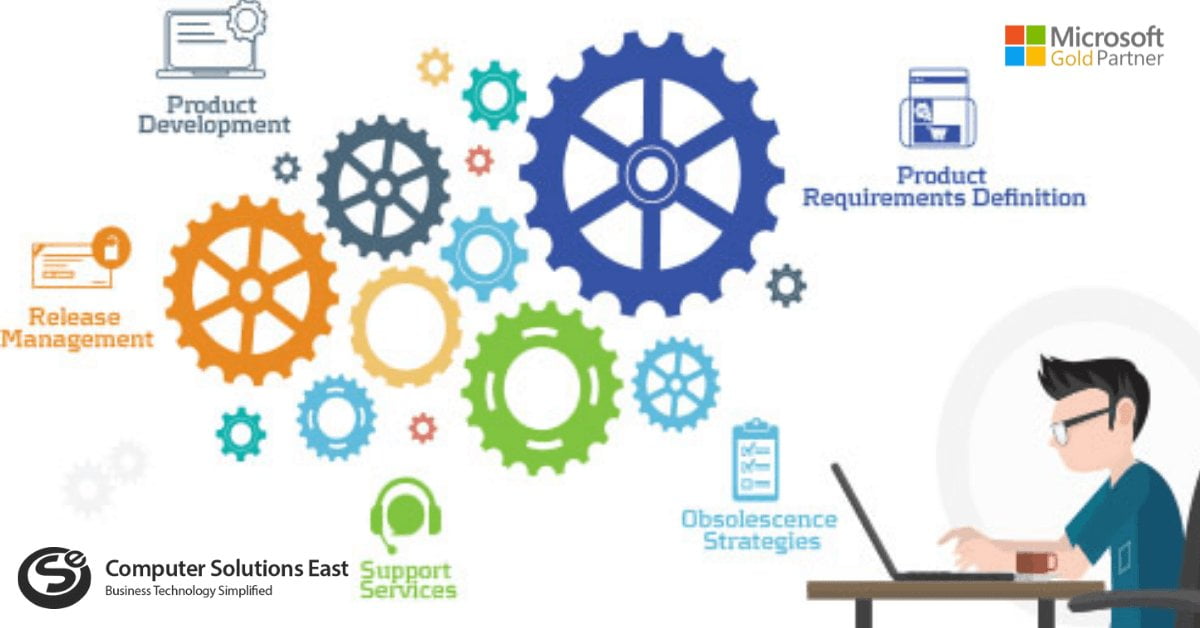What Could Go Wrong When Getting Managed IT Services for Healthcare?
Regardless of a healthcare provider’s business model, the patient is still the primary stakeholder. Any lapses in the services they should be getting could make or break a clinic or hospital’s reputation—and a patient’s death is the worst outcome. In fact, there are approximately 44,000 deaths in the US because of clinical errors. This includes mistakenly generated medical results, leading to treatments that do not directly address the illness.

This is where investments in the form of IT advisory services, on-site IT support, computer consultant, managed IT services for healthcare, and the likes are highly beneficial for healthcare providers. These primarily put forward digital-based clinical workflows that aim to optimize and sharpen patient services, making such services a sought-after investment.
According to a 2021 survey conducted by the Healthcare Information and Management Systems Society (HIMSS), nearly all (98%) of the surveyed healthcare organizations reported having invested in some form of health information technology. This includes electronic health record (EHR) systems, clinical decision support tools, telemedicine solutions, and other IT solutions to improve patient care and outcomes.
However, acquiring such IT investments is not the potential error that may come along the way. But before pinpointing probable mishaps, let’s look at the healthcare challenges that IT managed services can address.
Healthcare Challenges that IT Investments Can Solve
- Improving Patient Care – Healthcare IT services can improve patient care by providing electronic health records (EHRs), telemedicine, and remote monitoring technologies. These technologies allow healthcare providers to access patient information quickly, collaborate with other providers, and provide care remotely.
- Enhancing Clinical Efficiency – managed IT services for healthcare can help organizations to streamline their operations, reduce waste, and increase efficiency. For example, healthcare providers can use automated appointment scheduling systems, electronic prescribing, and inventory management software to optimize workflows and reduce administrative burdens.
- Ensuring Data Security – Healthcare IT services can help protect sensitive patient data from cyber threats and data breaches. This includes implementing robust security protocols, conducting regular vulnerability assessments, and training employees to be vigilant against cyberattacks.
- Supporting Population Health Management – IT managed services can help healthcare providers manage entire populations’ health by analyzing data to identify trends, track outcomes, and identify high-risk patients. This allows healthcare providers to intervene proactively and provide preventive care to reduce the risk of chronic diseases.
- Enabling Research and Innovation – managed IT services for healthcare can support medical research by providing data analytics tools, machine learning algorithms, and other technologies that can help researchers to analyze large datasets and identify new insights and discoveries.
Errors When Getting Managed IT Services for Healthcare
Hiring healthcare IT services can be a complex process, and organizations make several common errors that can lead to problems down the line. And it is more than choosing between cloud vs on premise setup for such assistance. Some of the most common errors when hiring healthcare IT services include:
- Not defining your needs clearly – Before hiring a healthcare IT services provider, it’s essential to clearly define your needs and expectations. This includes understanding what systems or processes you need assistance with, your budget, and your support level. Failure to define your needs can lead to misunderstandings and miscommunications.
- Not vetting the provider thoroughly – When hiring a healthcare IT services provider, it’s essential to thoroughly vet them to ensure they have the expertise and experience necessary to meet your needs. This includes checking their credentials, references, and online reviews.
- Not negotiating the contract effectively – A poorly negotiated contract can lead to confusion, misunderstandings, and unexpected costs down the line. Working with your healthcare IT services provider is essential to negotiate a contract that clearly outlines expectations, timelines, deliverables, and costs.
- Not ensuring the provider is HIPAA compliant – When working with healthcare data, it’s crucial to ensure that your IT services provider is HIPAA compliant. Failure to do so can result in hefty fines and other legal repercussions.
- Not prioritizing communication – Effective communication is essential when working with a healthcare IT services provider. It’s essential to establish clear lines of communication and ensure that you have regular check-ins to ensure everyone is on the same page.
How to Screen Healthcare IT Services Providers Effectively
Screening healthcare IT services provider is an important process to ensure that you find a provider who meets your needs and expectations. Here are some tips on how to screen healthcare IT services providers effectively:
- Check their credentials to ensure that they are qualified to provide the services you need. This includes checking their certifications, licenses, and other credentials.
- Review their experience and track record in working with organizations similar to yours. Take your time to check their portfolio, case studies, and testimonials from previous clients.
- Evaluate their project management, software development, and service delivery approach. This includes understanding their methodologies, processes, and tools to ensure they align with your organization’s needs and requirements.
- Verify if they are HIPAA compliant and have experience working with healthcare data. Check their security protocols, policies, and procedures for handling sensitive data.
- Assess their skills and ability to understand and communicate complex technical concepts to non-technical stakeholders.
- Request a detailed proposal that outlines their approach, timeline, deliverables, and costs. This allows you to compare proposals from different providers and ensure that the provider’s services and pricing align with your needs and budget.
Preventing the worst while looking for managed IT services for healthcare is very doable. You save yourself from exhausting time, effort, and resources with the wrong partner by successfully doing so. And one thing is certain: the right one is just around the corner—and that could be us!
Starting your IT investments for your healthcare company anytime soon? We’re here to help. Let’s talk!


